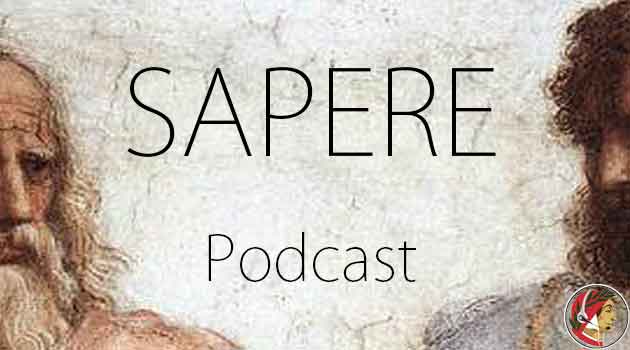Sapere is a rather important verb. Let’s see it together and learn some useful sentences. This time the webcast is for everyone.
Ciao a tutti
Sapere VS conoscere
Prima di tutto, first and foremost, let’s have a look at the conjugations of the two verbs and listen to the correct pronunciation.
Both sapere and conoscere translate as “to know”. The difference is in the depth of knowledge and the object I know.
SAPERE AS MODAL VERB VS POTERE
Sapere is a very important modal verb. A modal verb supports and describes a second verb and amplifies its meaning. In English, for example, I can swim means that I am able to swim, I know how to do that, or that I am allowed to do that. “Can” is the modal verb, “to swim” is the main verb.
In Italian, “Can” is translated with two different modal verbs: Potere or Sapere (+ an infinitive verb). I can say:
-
(io) so nuotare – I can swim, I learned as a child and I know how to do that.
-
(io) posso nuotare – I can swim, I am allowed to or I’m in a condition to do that.
Another example. Let’s suppose Carlo goes out for dinner and has a few glasses of Chianti. He needs to go back home. Now, he knows how to drive (sa guidare) but tonight he can’t (non può), because he had too much wine.
-
Carlo sa guidare, ma stasera non può perché ha bevuto.
SAPERE IN CONVERSATIONAL ITALIAN
There are plenty of Italian set phrases coming with the verb sapere. Below, a small, personal selection and webcast.
-
Fammi sapere. – Let me know.
-
Sono venuto a sapere che …- I came to know that…
-
Non ne voglio sapere. – I don’t want to know.
-
Ti faccio sapere. – I’ll let you know.
-
Le faremo sapere. – We’ll let you know (formal)
-
Come faccio a saperlo? How would I know it?
-
Mi sa che (il ristorante è caro) – I have the feeling that…
-
Non so se mi spiego. – Need I say more?
-
Mario sa il fatto suo. -He knows his stuff
Thanks for listening. Get in touch if you have questions. Alla prossima!



Ciao Riccardo.
Hai scritto “Mi sa che (il ristorante è caro)”
Mi chiedo perché non “Mi sa che il ristorante sia caro?”
La tua è una domanda sensata, come al solito. “Mi sa che…” è un’espressione idiomatica.
Infatti non esistono altri pronomi o tempi diversi dal presente (i.e NON si dice “ci sa che…” o “mi sapeva che…”). Questa espressione indica certamente un dubbio, ma esprime una “quasi certezza”, cioè se dico “mi sa che piove”, ne sono quasi certo. Rimane il dubbio su quale tra l’indicativo o il congiuntivo sia il modo più corretto dopo “mi sa che…”.
Nella lingua parlata, certamente l’indicativo è giusto, e indica “mi sa che…” come espressione di un fatto quasi certo, non di un’opinione. Il congiuntivo in teoria non è sbagliato, ci sono casi nell’italiano letterario, ma posso dirti che nessuno usa il congiuntivo in questo caso.
La tua stessa domanda è stata posta all’Accademia della Crusca. http://www.accademiadellacrusca.it/it/lingua-italiana/consulenza-linguistica/domande-risposte/sa